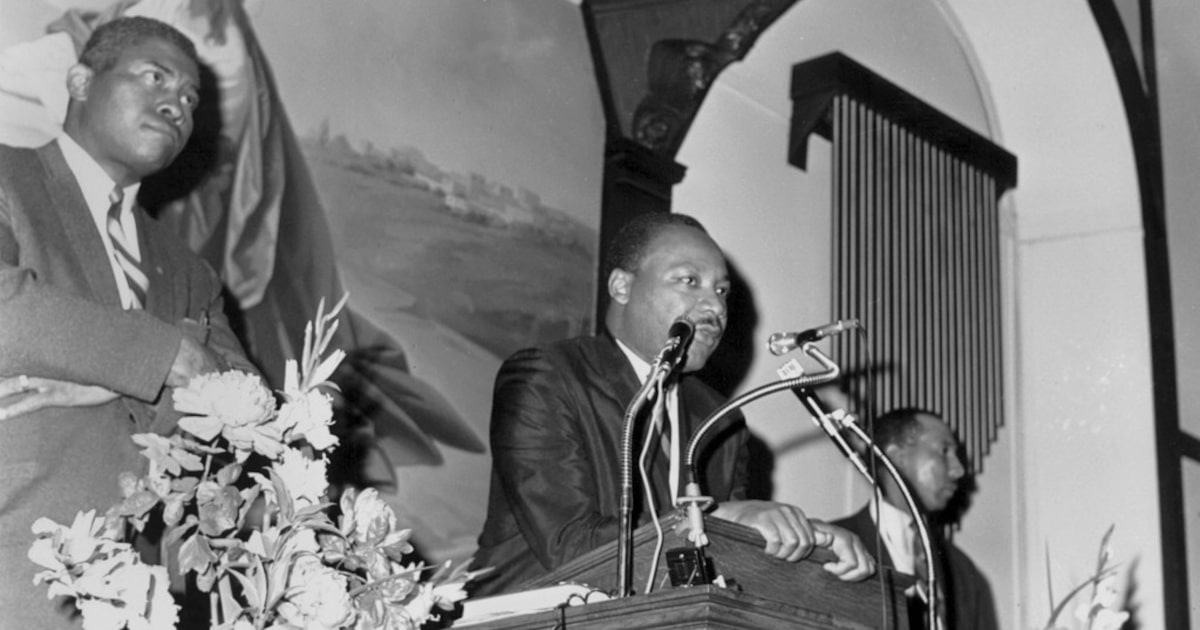When I was a young man, I dedicated my life to the Southern Christian Leadership Conference, working with Andrew Young, Ralph Abernathy and Martin Luther King Jr. – all three of them ordained ministers. We were ordinary men and women, but we believed in a God whose agenda was justice. Our pulpits were places of courage and hope.
Men and women from many religious backgrounds came together as preachers, rabbis and priests who would risk their lives to stand with us on the streets, in the jails and in the voting booths of the South. The Civil Rights Movement was more than a political movement; it was a spiritual movement.
We marched because we believed in a biblical truth that every person is made in the image of God. We risked beatings, fire hoses and being placed in jail cells because we believed that love was greater than hate. Our leaders were not shy about calling out the sin they witnessed, and there was sin in segregation, sin in poverty, sin in police brutality and sin in war. We knew that silence was complicity with sin.
Now, at 80 years old, I look at Dallas and our nation, and I must ask, where are the prophets of justice?
Opinion
Dallas is one of the most church-saturated cities in America. On almost every corner stands a sanctuary, cathedral, mosque or synagogue. So, with all this faith presence, why have so many pulpits gone silent and moved away from the great moral issues of our time?
Poverty and homelessness are growing in our city. Our public schools remain segregated by race and income. Gun violence and political hatred are fragmenting our democracy at alarming rates. Yet on Sunday mornings, many faith congregations preach more about personal prosperity than public accountability.
When faith is turned inward, it is not faith. The Rev. King reminded us not to be the master of the state or the servant of the state, but to be the conscience of the state. That role has not expired. And Dallas needs a public conscience now as much as ever.
When I marched with King, it was not easy. Speaking out was full of risk. However, too many pulpits in those days were comfortable places, afraid to offend donors or congregants.
Prophets are not usually well-liked. Jeremiah was not well-liked. Amos was not well-liked. Jesus was not well-liked when he overturned tables in the temple. Modern faith leaders need to ask: Do we want to be liked, or do we want to be faithful?
There are signposts of hope. We have many pastors standing up against gerrymandering and restrictive voting laws, standing up against the war in the Middle East, and standing up against the killing and the gun violence. Dallas is still a segregated city — by race, wealth and history. Healing those wounds will take more than charitable acts; it will take courage.
But we need more. There was a time I remember, when I was marching. There was a Presbyterian pastor next to me. There was a Jewish rabbi on the other side of me. There were a couple of Catholic nuns walking in front of me. In front of them were some professional athletes. And in front of them priests marching and singing “We Shall Overcome.” Every one of those people understood the biblical stories of faith, hope, love and truth.
I will never forget the night King was murdered. People said the movement might die with him. It did not because the movement was never about one person. It was a faith movement of the people who believed God was calling them to action. That call has not disappeared.
To the pastors, priests, rabbis and imams of Dallas: Your city is crying out for you to stand tall. Speak sermons that create discomfort, and not just comfort. Help your congregations see that following God means standing up to injustice and not overlooking it. And do not let fear of politics deter you from speaking truth, for the Bible has its own historical calls for justice that existed long before any political party.
I have seen God’s people climb mountains together when they are inspired to act by faith and courage. The question is no longer whether injustice exists. It does. The question is whether the latest iteration of faith leaders is willing to respond the same way as their predecessors.
Faith leaders, Dallas is looking. Our children are looking. God is looking.
